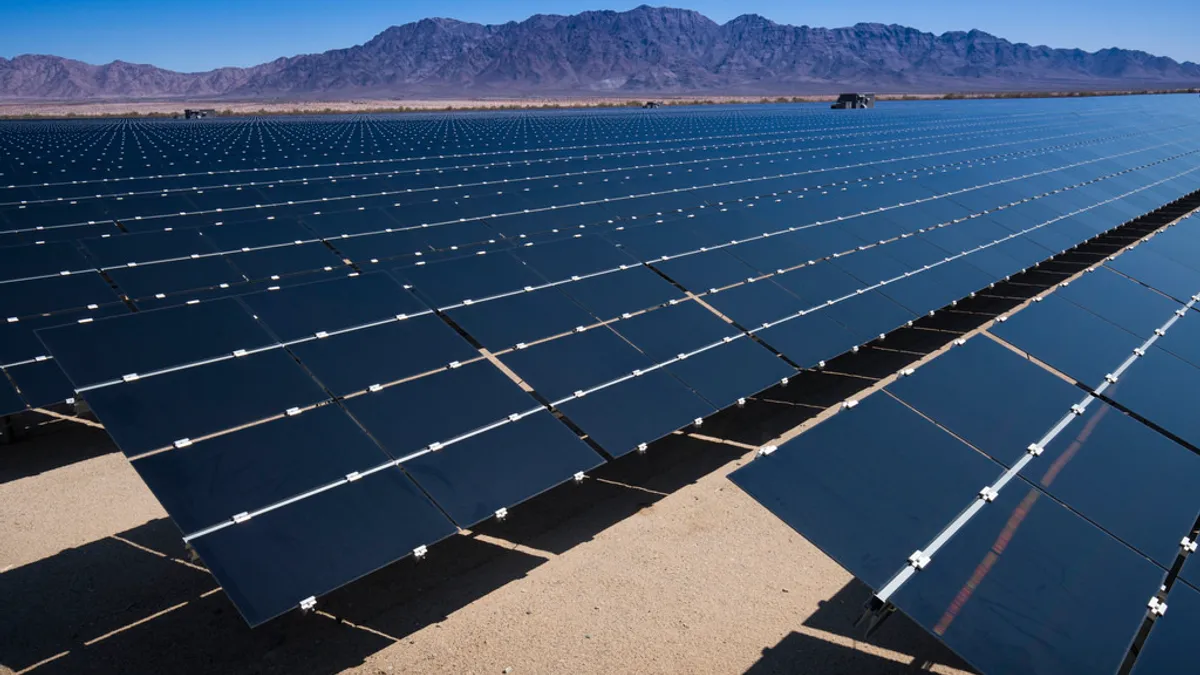Dive Brief:
-
In 2020, 114 deals delivered $14.5 billion of corporate funding into the global solar sector, including venture capital funding, public market, and debt financing, according to Mercom Capital Group's 2020 Solar Funding and M&A Report.
-
The first half of the year saw a 25% drop in corporate funding compared to the same period in 2019, but activity later surged to more than make up for that initial deficit — 2020 saw a 24% increase in overall corporate funding compared to the $11.7 billion deployed in 2019.
-
The two companies that received the most venture capital funding last year, India-based Ayana Renewable Power and U.S.-based Silicon Ranch, pulled in $390 million and $225 million, respectively. The next closest competitor, Australia-based Brighte, received $76 million.
Dive Insight:
Earlier in 2020, corporate funding activity in the solar industry would not have foretold the year's final outcome.
In July, for example, Mercom Capital Group CEO Raj Prabhu said that acquistion activity — a marker of industry health — was down in the second quarter. However, by year's end, 231 large-scale solar project acquisitions had taken place, 39 more than in 2019. "Solar asset acquisitions were at an all-time high in a pandemic year and have become even more sought-after as an investment haven," Prabhu said in a report summary released Monday.
According to Mercom, "39.5 GW of large-scale solar projects changed hands in 2020 compared to 26.1 GW in 2019."
In addition, who made the acquisitions shifted in 2020. While project developers and investment firms were the top two buyers of solar projects in Q4 of 2019, power producers moved in as the second most active acquirer in the same time period of 2020.
The number of merger and acquisition deals in the global solar sector dropped to 62 in 2020 compared to 65 in 2019, with Sunrun's purchase of Vivint Solar for $3.2 billion the highest-value buyout of 2020.
Who received and offered venture capital funding changed in 2020 as well. While three of the top five recipient companies were India-based last year, only one, Ayana, cracked the top six this year (fifth and sixth place in 2020 received an even amount of funding). Instead, three U.S.-based companies slid into the top spots. Investors in two of the three companies include Shell and Duke Energy. A vast majority — 90% — of VC funding went towards downstream companies.
For the American Council on Renewable Energy, Mercom's assessment of 2020 corporate funding bodes well for the future of solar.
"Mercom's 2020 Annual Report shows the renewable sector's remarkable resilience in the face of [an] unprecedented challenge," ACORE President and CEO Gregory Wetstone said in a statement. "When it comes to renewable energy, the message is clear: companies want to develop it; investors want to finance it; and American consumers and businesses want to buy it."
Wetstone added that ACORE looks forward to working with the incoming Biden administration to decarbonize the power sector, a process he hopes will include a direct-pay option for renewable tax credits.














